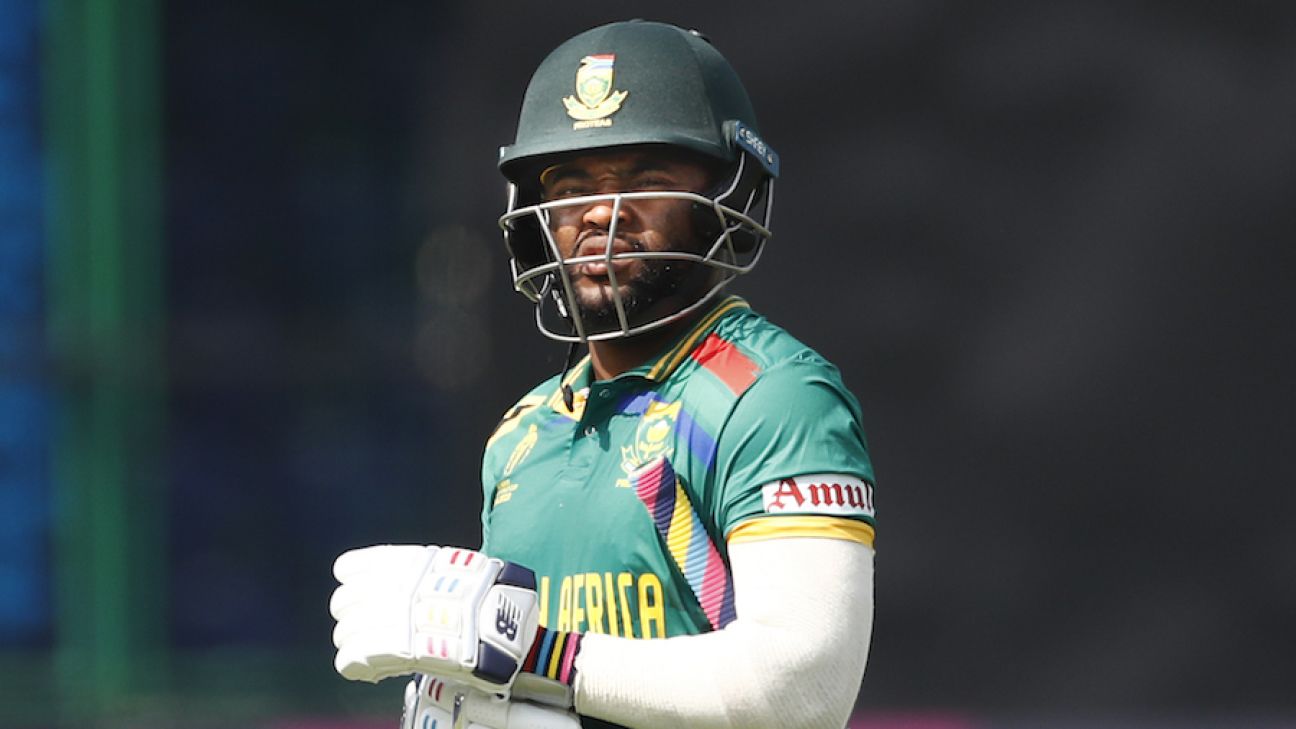Temba Bavuma echoes SACA's stand for women's rights in Afghanistan
Written by I Dig Sports
"I look at it in my personal capacity. It's obviously something that is quite strong within my own values," he said. "I support the idea of inclusivity and caring for women. We want everyone to have a fair chance within society, and we know that that is something that is relevant to us as a country in South Africa. I'm fully behind the sentiments that are expressed by SACA."
On Thursday, SACA issued a statement which both recognised Cricket South Africa (CSA)'s right to seek out fixtures - such as these against Afghanistan - and also asked CSA to "utilise the leverage available to it through this series to highlight that these rights for Afghanistan's women's players must be protected and respected".
CSA have not commented on whether there are plans to make any statements or gestures in support of Afghan women, but continue to discuss the issue of women's cricket in Afghanistan through the ICC. Both white-ball coach Rob Walter, who on Monday said he had no part in deciding whether to play Afghanistan or not, and Bavuma have opted to leave the issue of whether to engage Afghanistan on the field with CSA.
"I think I've got to respect the fact that there are people in positions who have that responsibility to speak more eloquently and articulate a little bit more of it," Bavuma said. "In my own personal capacity, I definitely support the stance and the sentiments expressed by SACA. And I can understand where Rob as well is coming from in that we are selected to do a job in the cricketing field. And I think a lot of our energy will generally be dedicated to that at least."
So far, the only board that has actively pulled out of competition against Afghanistan is Australia, while the ECB has also indicated it will not schedule series against Afghanistan. Both Australia and England continue to play Afghanistan at ICC tournaments. South Africa have never played against Afghanistan outside of a World Cup - in either ODIs or T20Is.
Apart from South Africa's shared history of legalised discrimination with Afghanistan, the country also has an epidemic of gender-based violence (GBV). This year, the World Population Review rated South Africa and Brazil as the two most dangerous countries for women. In response, there have been various initiatives against GBV, including in cricket. The national women's team has an annual black day, where they swap their usual green-and-gold kit for black outfits, to raise awareness about the plight of GBV.
Two weeks ago, national rugby captain, Siya Kolisi, had this to say after the Springboks beat the All Blacks in Johannesburg: "It's 30 years of freedom; I want to say congratulations to South Africans. But we still know there are many people who are still not free. Hopefully, the next celebration we celebrate is the women who are free of gender-based violence."















 Phone: (800) 737. 6040
Phone: (800) 737. 6040 Fax: (800) 825 5558
Fax: (800) 825 5558 Website:
Website:  Email:
Email: 






